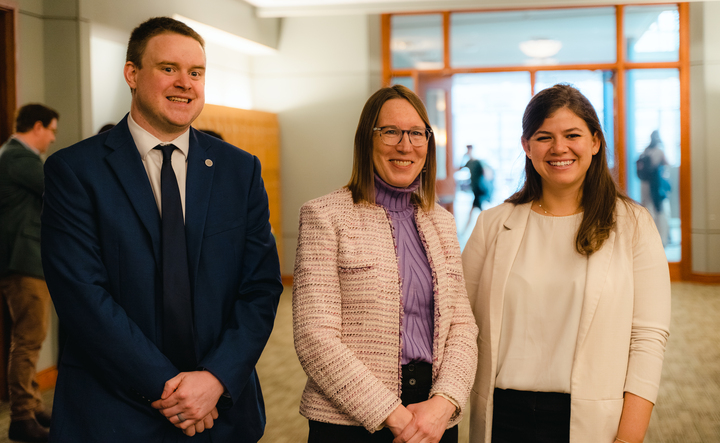2022 was a low point in crypto’s history thanks to events that included the high-profile collapse of FTX and subsequent criminal proceedings brought against its founder. Yet if we fast-forward to today, it looks like faith in crypto is making a comeback as Bitcoin’s price surges to $42,000.
But while cryptocurrencies and blockchain technologies in general are decentralized by nature, this doesn’t mean that they should go hand in hand with being deregulated.
The technology and the assets they produce are increasingly used for everyday tasks. Governments haven’t been quick to welcome the change but a new generation of policymakers and innovators are keen to usher in a new era for the blockchain that will help to bring the benefits of the technology to users in a more secure and reliable way.
For this reason, Hester Peirce, Commissioner of the United States Securities and Exchange Commission (SEC), delivered a fireside chat at Georgetown University on January 26th to mark the launch of USA-UAE Alliance, a blockchain business forum founded by Georgetown University classmates Edward Cullen and Michael Amatulli.
Token Safe Harbor 3.0
Hester M. Peirce was appointed by President Trump to the U.S. Securities and Exchange Commission and was in 2018 sworn in. Before joining the SEC, Peirce conducted research on the regulation of financial markets at the Mercatus Center at George Mason University.
She was a Senior Counsel on the U.S. Senate Committee on Banking, Housing, and Urban Affairs, where she advised Ranking Member Richard Shelby and other members of the Committee on securities issues.
Peirce has also spoken previously about the need for so-called Token Safe Harbors. The idea here is to give crypto and blockchain startups the breathing space to develop and build networks to a more robust stage before having to adhere to federal finance regulations and security protocols.
According to notes Peirce released on GitHub in relation to her Token Safe Harbor 2.0 proposal, the initiative aims to enhance token purchaser protection, more frequent updates on development disclosures and more clarity about the transition process that would take place at the end of the three-year grace period.

During the event at Georgetown University Edward Cullen, CEO of Crescite and one of the interviewers at the event, asked Peirce whether it may be time for a Token Safe Harbor 3.0 proposal in 2024.
She shared that, “A problem that a lot of people had pointed out was that there are a lot of people issuing tokens and there was not a lot of disclosure around them. Obviously, if people are buying these things you want to make sure they know what they’re buying so we wanted a framework designed around the information that buyers would uniquely want.”
She continued, “I was trying to get at the safe harbor that I put out would require people to make these disclosures for the initial period when they when they were selling these tokens. And then the idea was that if you really decentralize the blockchain such that no one had more information than anyone else, the disclosures wouldn’t be necessary anymore because all that information would be out there and it would be available for anyone to see there.”
Striking balance with regulations
Cullen also asked Peirce to share her views on whether freedom in capital markets is a positive or negative.
She expanded, “A lot of the way I think about securities regulation is driven because we want to build an economy that allows people to get to get the most out of themselves. You have to have capital markets that allow capital to flow to people who have good ideas and that those good ideas are ferreted out not by a regulator up at the top, but by people who are on the ground, who know the people, who know the technology that they’re building, who can ask those questions.”
She concludes “It’s a grassroots kind of thing. And so a properly functioning capital market makes sure that capital flows in the right direction. When I have a choice to maximize liberty, I will but of course, there are statuary mandates and parameters to consider.”
The USA-UAE blockchain alliance
Said Edward Cullen, CEO of Crescite Innovation Corporation, “The USA-UAE Alliance™ is the latest example of international collaborators coming together and using blockchain technologies for economic growth and social good. We are appreciative of our education as continue to build.”
Cullen, earlier a candidate for Mayor of New York City, is an entrepreneur who is known for innovation and regulatory leadership. The USA-UAE Alliance™ team includes Karl P. Kilb III, Co-Founder and Chairman of Crescite Innovation Corporation and former General Counsel of Bloomberg LP. Kilb is the Founder and Chairman of the Entrepreneurial Law Advisory Council at the Fordham University School of Law.
Said Michael Amatulli, who helped start the alliance and is CEO of MVNM, “Blockchain is going to become increasingly prominent across financial communities and it’s essential that the development of the technology happens in a fair and sustainable manner.”
Featured photo of Edward Cullen, Hester Peirce and Jacquelyn Melinek

